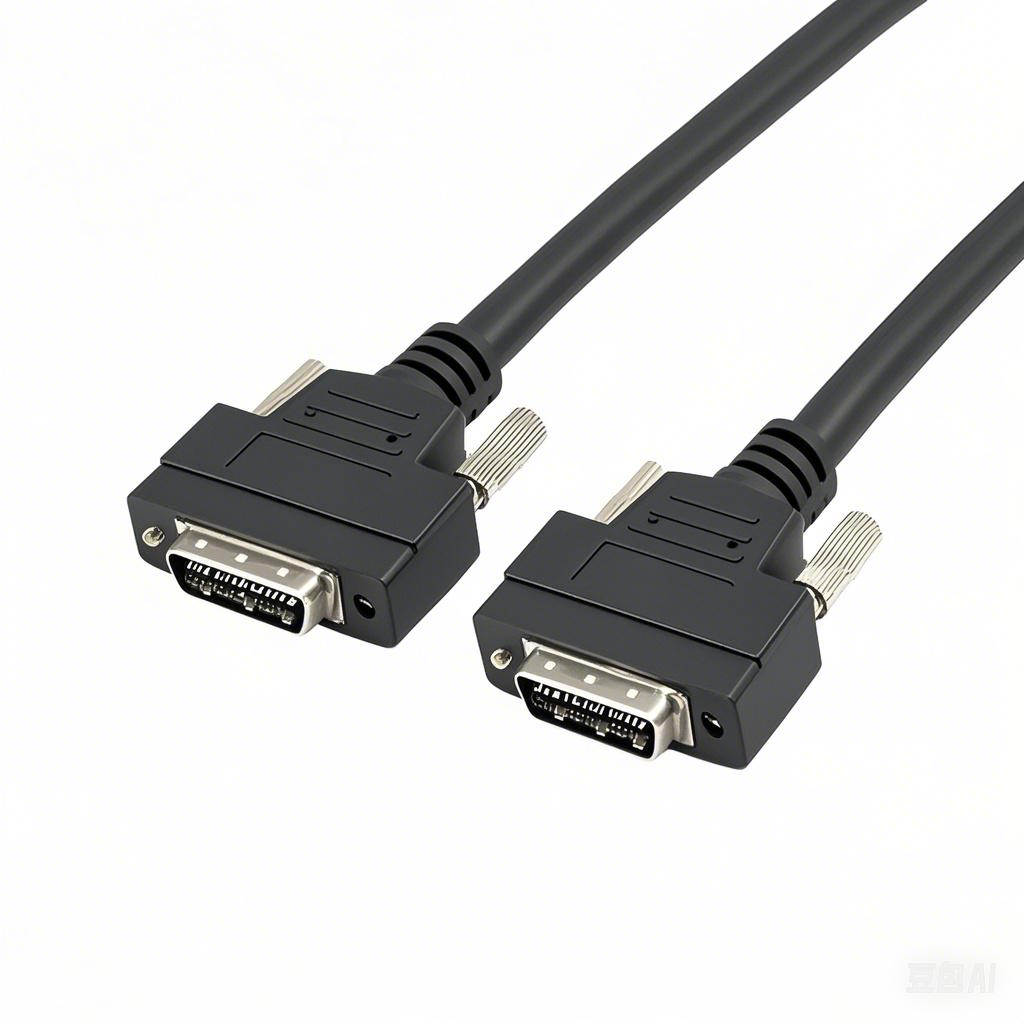Machine Vision Cables for Packaging Line Automation
You’ve invested in cutting-edge machine vision systems for your packaging line. Cameras, lenses, lighting – all top-tier to ensure flawless inspection: labels applied correctly, caps sealed, fill levels perfect, and packages free from damage. But why are you still seeing occasional false rejects? Why does the system sometimes lose connection to the camera, grinding your high-speed line to a halt? The culprit might be surprisingly simple: your cables.
Often overlooked in the glamour of cameras and software, machine vision cables are the essential nervous system connecting your critical inspection points. Choosing the wrong ones is like putting cheap tires on a race car – everything seems fine until it fails spectacularly at high speed.
The Critical Challenges in Packaging Automation:
Packaging lines are demanding environments, presenting unique hurdles for vision systems and their cables:
- Electrical Noise Frenzy: Variable frequency drives (VFDs) controlling motors, large motors starting and stopping, power supplies – all generate intense electromagnetic interference (EMI). Unshielded or poorly shielded cables act like antennas, picking up this noise. Result? Erratic camera signals, distorted images, and false inspections or missed defects. Imagine trying to hear a whisper in a roaring factory – that’s your vision signal battling EMI.
- Physical Punishment: Cables snagging on machinery, enduring vibrations from conveyors, getting dragged alongside moving equipment, or constantly flexing in robot-mounted camera applications. Standard cables fatigue, break internally, or suffer connector damage, leading to intermittent faults or complete failure. Just one failed cable can stop the line.
- Signal Loss Over Distance: Packaging lines can be long! Running GigE Vision camera signals dozens of meters from the inspection point to the control cabinet is common. Cheap cables or the wrong cable type cause signal degradation, manifesting as flickering images, dropped frames, or lost camera connections, especially at high resolutions or frame rates.
- Industrial Environment Harshness: Exposure to dust, dirt, cleaning chemicals (solvents, water jets), oils, grease, and wide temperature fluctuations is standard. Cables must be rugged enough to resist degradation, moisture ingress, and chemical attack over years of operation.
- Throughput is King: Any unplanned downtime caused by cable failure directly hits your bottom line. Studies suggest even short, frequent stops can slash OEE by 5-15%. Reliable cabling isn’t optional; it’s integral to achieving peak efficiency and productivity.
Why “Just Any” Cable Won’t Cut It: The Machine Vision Cable Difference
Standard Ethernet cables from the office supply store are a recipe for disaster in a packaging environment. Machine vision cables are engineered specifically to overcome the challenges above:
- Superior Shielding: Multiple layers of shielding (typically foil + braided copper) create a fortress against EMI noise, ensuring pristine signal integrity. Look for cables tested and certified to stringent EMC standards.
- Engineered Flexibility & Durability: Made with high-strand count conductors and specialized jacketing materials (like PUR or TPE), these cables withstand constant bending, flexing, twisting, and mechanical stress far better than standard cables. Look for ratings like IP67 for dust/water resistance.
- Low Signal Loss: Quality machine vision cables use high-grade copper and precise manufacturing to minimize signal attenuation (loss) over long distances. This is critical for maintaining high bandwidth required by modern vision cameras (GigE Vision GenICam standards are key here).
- Rugged Industrial Connectors: Connectors (like M8, M12 D-coded for GigE Vision, or industrial USB) feature robust metal housings, secure locking mechanisms (screw lock, push-pull), and proper strain relief to prevent pull-outs or vibration damage. Seal kits protect connections from environmental hazards.
- Protocol Compatibility: Certified cables ensure reliable communication with specific vision protocols:
- GigE Vision: The dominant standard. Requires Cat5e or Cat6 cables with specific shielding and connectors.
- USB3 Vision: Offers high bandwidth. Requires dedicated industrial USB cables designed for longer runs and factory noise.
- Camera Link & CoaXPress: Require specialized, often more expensive, coaxial or multi-pair cables for very high performance.
Choosing the Right Cable: Key Factors
- Vision Protocol: Match the cable to your camera’s interface (GigE Vision, USB3 Vision, Camera Link, CoaXPress).
- Required Bandwidth/Distance: Higher resolutions and frame rates need higher category cables (Cat6a) for GigE over long distances. Calculate your needs.
- Environmental Hazards: Will it face chemical washdowns? High temperatures? Constant flexing? Choose jacket material (PVC, PUR, TPE) and connector IP rating accordingly.
- Flexibility Requirements: Fixed installations need less flex than cables mounted on robots or constantly moving assemblies. Look for “continuous flex” rated cables for high-motion areas.
- Shielding: Double shielding (foil + braid) is essential for high-noise environments like packaging lines. Ensure connectors are shielded too.
- Connector Type & Locking: Choose connectors rated for your protocol and lock securely (M12 screw lock is very common and reliable).
The Tangible Benefits of Getting Your Cables Right
Investing in the right machine vision cables delivers significant ROI for your packaging automation:
- Minimized False Rejects & Missed Defects: Clean signals mean accurate inspections, saving on product waste and preventing customer complaints.
- Maximized Uptime & OEE: Robust cables dramatically reduce unplanned stops caused by signal loss or connection failures. Keep your line running smoothly.
- Consistent Performance: Eliminate image flicker, signal drops, and intermittent problems that plague unreliable cabling.
- Reduced Maintenance Costs: Durable cables withstand the harsh environment, needing far less replacement and troubleshooting effort.
- Future-Proofing: Choosing cables meeting or exceeding current standards (e.g., Cat6a for GigE) gives headroom for future camera upgrades.
Real-World Case: Cable Solves Mystery Stoppages
A major food manufacturer struggled with unexplained, intermittent stoppages on their high-speed bottling line vision system. Cameras kept dropping offline. Expensive technicians focused on cameras and software. Eventually, a packaging engineer discovered that cheap, non-standard cables were routed too close to a large conveyor motor. Replacing them with properly shielded M12-D coded GigE Vision cables with screw-lock connectors routed away from EMI sources instantly resolved the issue. Uptime improved by 12%.











